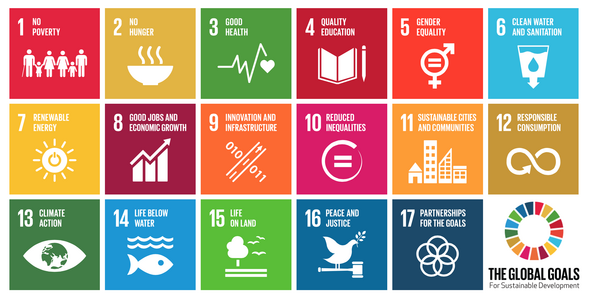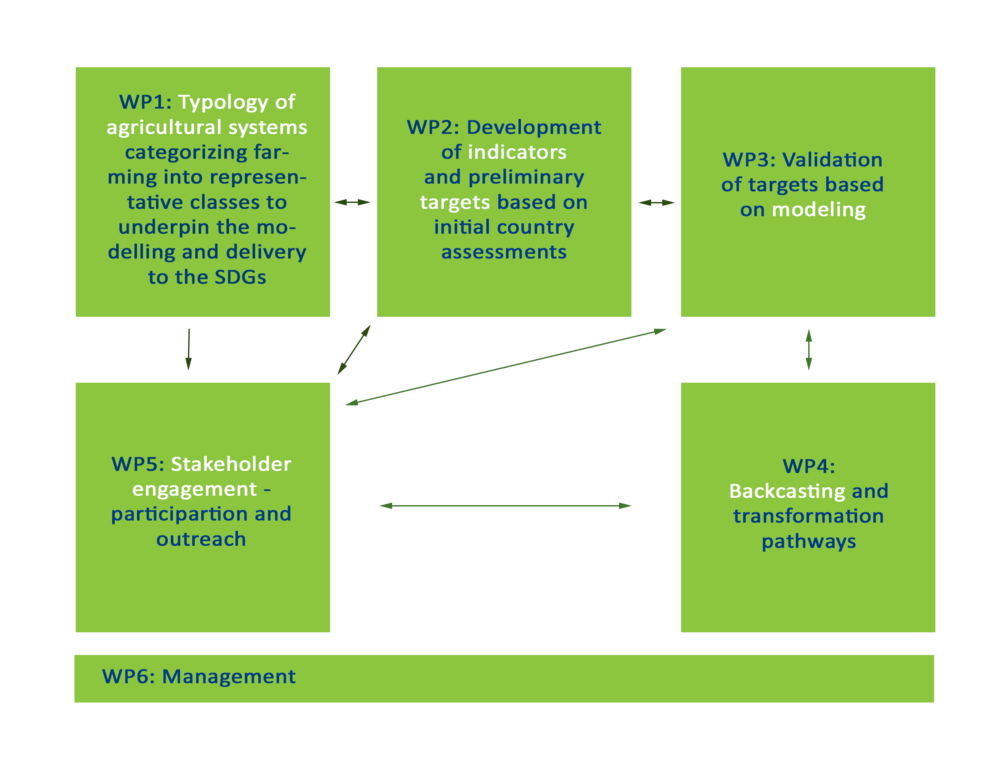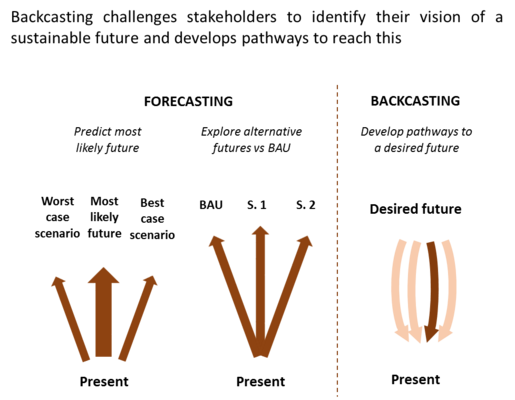TSARA
Targets for Sustainable And Resilient Agriculture (TSARA)
Project abstract
Towards Sustainable And Resilient Agriculture (TSARA) investigates means to support the development of pathways to delivering to the UN Sustainable Development Goals (SDG) and targets, especially those relevant to the aims of SURPLUS – agriculture, the bioeconomy and the terrestrial environment.
Having classified EU and NZ agricultural land-use and management into major types, the project will use models to forecast the outputs and wider impacts of agriculture over the next 15 years (for the SDGs) and up to 2050 for FACCE-JPI. A series of tables, known as dashboards, will be set up that record the changes in indicators of sustainable agriculture in the EU and NZ needed to achieve the desired targets for SDGs by 2030. The approach is known as ‘backcasting’ and consists of setting out the expected or desired state of agriculture at some point in the future and then taking backward steps to see what conditions would have to be like at intermediate dates in order to achieve targets.

Methods and materials

Target groups
We expect to engage with agricultural and environmental businesses and stakeholders to understand their concerns and solicit suggestions for how to achieve pathways and targets towards the SDGs. As well as providing valuable and realistic perspectives for us on our research, this engagement also helps ensure buy-in at all levels of society with the eventual project outputs. These outputs will be a series of challenging strategies to deliver improvements in the sustainability of EU and NZ agricultural practice.
Expected results
A range of alternative, perhaps radical pathways will be devised that explore and reduce the trade-offs between the delivery of improved food production, better environmental quality and social welfare in the EU and NZ bioeconomies as well as the social and political impediments along the way to achieving these. TSARA thus iterates time-dependent pathways as well as helping with the setting of ambitious levels of delivery to SDG targets together with costs and benefits.

Research gaps
The SDGs are intended to be challenging. It is likely that by sharing knowledge and experiences and coordinating international effort more might be achieved than could be done by nations acting alone. An example of what can be done is given by coordinated efforts to reduce carbon emissions from electricity production (Williams et al., 2012). It is likely that significant changes in the way the EU and NZ bioeconomies are managed will be needed in order to meet the challenges set by the SDGs. Agriculture and society may require large changes and we do not yet understand what these changes are, nor can we envisage the reaction of stakeholders and wider society to these ideas. TSARA will explore the costs and benefits of possible changes as well as ways to overcome social difficulties that surround delivering the agriculture-related SDGs.